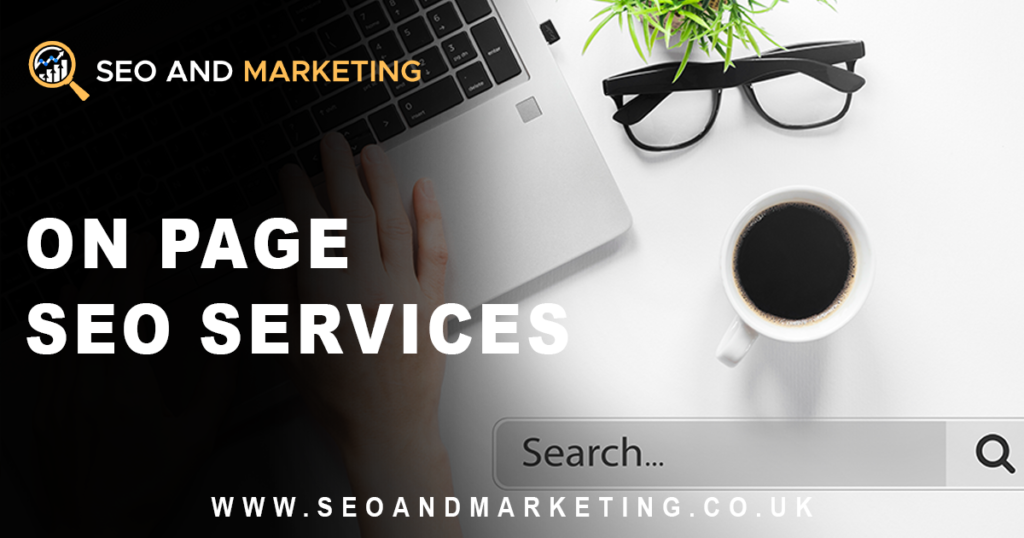For companies of all sizes, keeping an effective online presence is essential in the modern digital world. One of the most effective ways to achieve this is through on-page SEO services. If you’re based in the UK and looking to improve your website’s visibility, this article will guide you through everything you need to know about on-page SEO and why it’s essential for your business.
What is On-Page SEO?
The process of optimizing individual web pages to rank better and attract more relevant traffic from search engines is known as “on-page SEO.” This entails making a page’s HTML source code and content more optimized. Unlike off-page SEO, which focuses on external signals like backlinks, on-page SEO is all about the elements you can control on your own website.
Why Does On-Page SEO Matter?
Imagine you have a beautiful storefront, but it’s located in a hidden alleyway. No matter how great your products are, if people can’t find you, they can’t buy from you. On-page SEO ensures that your website is not only attractive and informative but also easily discoverable by search engines and users alike.
Key Elements of On-Page SEO
1. keyword Research and Optimization
The foundation of any successful on-page SEO strategy is thorough keyword research. This involves identifying the terms and phrases your potential customers are searching for and strategically incorporating them into your content. Tools like Google Keyword Planner can be incredibly helpful in this process.
For example, if you’re a bakery in London, you might want to target keywords like “best bakery in London,” “fresh pastries London,” and “London cake shop.”
2. Quality Content Creation
Once you’ve identified your keywords, the next step is to create high-quality, engaging content that incorporates these terms naturally. Your writing should benefit readers and address their concerns. Steer clear of keyword stuffing, as it may result in search engine penalties.
Anecdote:
Think of your content as a conversation with a friend. You wouldn’t repeat the same phrase over and over in a chat, right? Instead, you’d weave it into your conversation naturally. The same goes for your website content.
3. Meta Tags Optimization
Meta tags include your title tags, meta descriptions, and header tags (H1, H2, etc.). These elements help search engines understand the content of your pages and are also the first things users see in search results.
- Title Tags: Keep them concise, include your primary keyword, and make them compelling.
- Meta Descriptions: Summarize your page content in a way that entices users to click through.
- Header Tags: Use these to structure your content, making it easier for both users and search engines to navigate.
4. URL Structure
Your URLs should be clean, descriptive, and include your target keywords. Avoid using long strings of numbers or irrelevant characters. For example, “www.yoursite.com/bakery-london” is much better than “www.yoursite.com/page?id=12345”.
5. Internal Linking
Internal links help search engines understand the relationship between different pages on your site. They also keep visitors engaged by guiding them to related content. For instance, if you have a blog post about “wedding cakes,” you might link to another post about “best wedding cake designs.”
6. Image Optimization
Images are a vital part of any web page, but they need to be optimized to avoid slowing down your site. Use descriptive file names and alt text that include your keywords. Compress images to improve load times without sacrificing quality.
7. Mobile friendliness
With more people accessing websites from their mobile devices, having a mobile-friendly site is crucial. Ensure your website is responsive, meaning it adjusts to fit any screen size. Google’s Mobile-Friendly Test can help you determine if your site meets this criterion.
8. Page Load Speed
A fast-loading website provides a better user experience and can positively impact your rankings. Use tools like Google PageSpeed Insights to identify and fix any issues slowing down your site.
Implementing On-Page SEO: A Step-by-Step Guide
- Conduct Keyword Research: Use tools like Ahrefs, SEMrush, or Google Keyword Planner to find relevant keywords.
- Create Quality Content: Write informative, engaging articles that naturally incorporate your target keywords.
- Optimize Meta Tags: Craft compelling title tags and meta descriptions that include your primary keywords.
- Clean Up URLs: Make your URLs short and descriptive, including keywords where appropriate.
- Add Internal Links: Link to related content within your site to keep visitors engaged and help search engines understand your site structure.
- Optimize Images: Use descriptive file names and alt text, and compress images to improve load times.
- Ensure Mobile-Friendliness: Test your site on different devices and use responsive design techniques.
- Improve Page Speed: Use tools to identify and fix any issues affecting your site’s load time.
Why Choose Professional On-Page SEO Services?
While it’s possible to handle on-page SEO yourself, it can be time-consuming and complex. This is where professional on-page SEO services come in. By hiring experts, you can ensure your website is fully optimized without having to navigate the technical details yourself.
Professional On-Page SEO Service’s Advantages
- Expertise: Professionals stay up-to-date with the latest SEO trends and algorithm changes.
- Time-Saving: Focus on running your business while experts handle your SEO.
- Better Results: Experienced professionals can achieve better and faster results.
- Ongoing Support: SEO is not a one-time task; it requires continuous monitoring and adjustments.
Making the Final Decesion
Investing in on-page SEO services is crucial for improving your website’s visibility and attracting more customers in the UK. By optimizing your content, meta tags, URLs, and other on-page elements, you can ensure your site is easily discoverable by both search engines and users.
If you’re ready to boost your website’s performance, consider hiring professional on-page SEO services. With the right strategy and expertise, you can achieve significant improvements in your search engine rankings and overall online presence.
Next: SEO Marketing Tips


